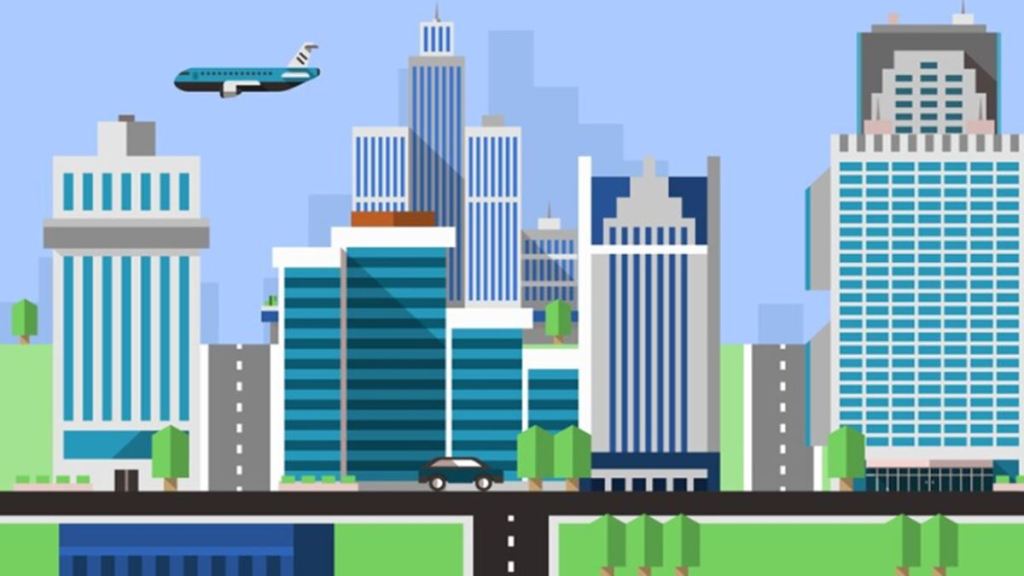The urban landscape of the Global South, particularly in countries like India, Bangladesh, and other South Asian nations, faces an array of challenges as cities undergo rapid urbanization. In India, major cities grapple with socio-economic inequality, inadequate infrastructure, and climate vulnerability, highlighting an urgent need to rethink urban development strategies that prioritize resilience and inclusivity. Rapid population growth has outpaced infrastructure in cities like Delhi, Mumbai, and Kolkata, where issues like housing shortages, inadequate sanitation, and limited green spaces are pressing concerns.
Urban planning in India is now more critical than ever, as large-scale projects are launched to enhance quality of life, accessibility, and sustainability. However, these ambitions are often left unfulfilled. In rapidly-developing cities like Noida and Gurgaon, challenges like traffic congestion, air pollution, and inadequate public services underscore the necessity for policies that evolve with population demands and industrial growth.
Addressing Gaps in India’s Master Plans
Many of India’s master plans reveal significant gaps in addressing current and future urban issues. For instance, the Delhi Master Plan 2041 has faced delays, with missed milestones raising concerns about its ability to meet the city’s complex needs. In Ahmedabad, the lack of clear administrative boundaries complicates the city’s development efforts, while Chennai’s third master plan struggles to keep up with the city’s rapid growth and changing dynamics. In Hyderabad, city leaders are advocating for an updated master plan that aligns with modern urban requirements and addresses the environmental and social challenges of today. India’s urban landscapes demand master plans that are not only forward-looking but also flexible enough to respond to evolving urban demands.
Also Read: Top 10 mutual funds for doubling your wealth over time
The recent G20 summit, held under Brazil’s presidency in 2024, serves as a crucial platform for addressing sustainable urban development in the Global South. This initiative is part of a larger agenda and is facilitated by the G20 ‘Troika’ collaboration involving Brazil, India, and South Africa. This dialogue aligned with the G20’s goals of poverty reduction, equality, and improved governance, providing India and other nations a venue to address shared urbanization challenges. The discussions focused on resilience, governance, and climate adaptation highlight common struggles and innovative strategies. The platform organized by G20 along with Observer Research Foundation (ORF) provided a unique platform for leaders across the Global South to collaboratively shape sustainable urban policies that reflect our shared experiences and aspirations.
India’s Path to Sustainable Cities Aligned with SDGs
India’s efforts to align urban development strategies with the Sustainable Development Goals (SDGs) are crucial for creating resilient, sustainable cities. Rapid urbanization has brought challenges such as climate risks, extreme weather, and resource scarcity, affecting India’s megacities and smaller towns alike. By integrating the SDGs into urban policies, India aims to strike a balance between economic growth, environmental stewardship, and social equity. Achieving this balance means addressing housing affordability, efficient public transportation, and climate resilience, ensuring cities like Mumbai, Bengaluru, and Chennai are built for long-term well-being and inclusivity.
Innovative Planning and Design for India’s Inclusive Urban Growth
Incorporating innovation into urban planning is critical to building inclusive and equitable cities in India. Cities like Bengaluru, Pune, and Surat are experimenting with affordable housing, integrated green spaces, and eco-friendly infrastructure to address challenges posed by rapid urban growth. Bengaluru’s commitment to green infrastructure, aimed at mitigating urban heat and flooding, showcases how Indian cities can model sustainable development. These efforts highlight India’s role in the Global South as a leader in blending ecological and social considerations in urban design, offering insights for other rapidly urbanizing nations.
Governance and Policy-Making for Sustainable Urbanization in India
Effective governance and policy-making are essential for implementing sustainable urban solutions that meet India’s environmental and social realities. Local governments in cities like Pune, Hyderabad, and Jaipur play a vital role in supporting growth that is economically inclusive and environmentally sound. Initiatives like improving public transportation, creating sustainable housing, and investing in waste management systems reflect India’s commitment to enhancing residents’ quality of life while minimizing the ecological impact of urban expansion. These cities demonstrate how proactive governance can lead to sustainable urban growth in India.
Rethinking Master Plans for Growing Cities in India
India’s rapidly-growing cities require master plans that can adapt to evolving needs, with a strong focus on long-term vision and regional connectivity. Cities such as Bengaluru and Jaipur are revising their master plans to incorporate sustainability, connectivity, and equitable resource distribution as priorities, ensuring they remain livable amidst expansion. As cities grapple with urban sprawl, flexible and innovative planning will be essential to address challenges like water scarcity, energy efficiency, and green space allocation. These efforts underline the need for India’s urban centers to prioritize sustainable and adaptable master plans that are responsive to both current and future demands.
(By Dikshu C. Kukreja, Honorary Consul General of the Republic of Albania and Managing Principal, CP Kukreja Architects)
Disclaimer: The views expressed are personal and do not reflect the official position or policy of FinancialExpress.com. Reproducing this content without permission is prohibited.

